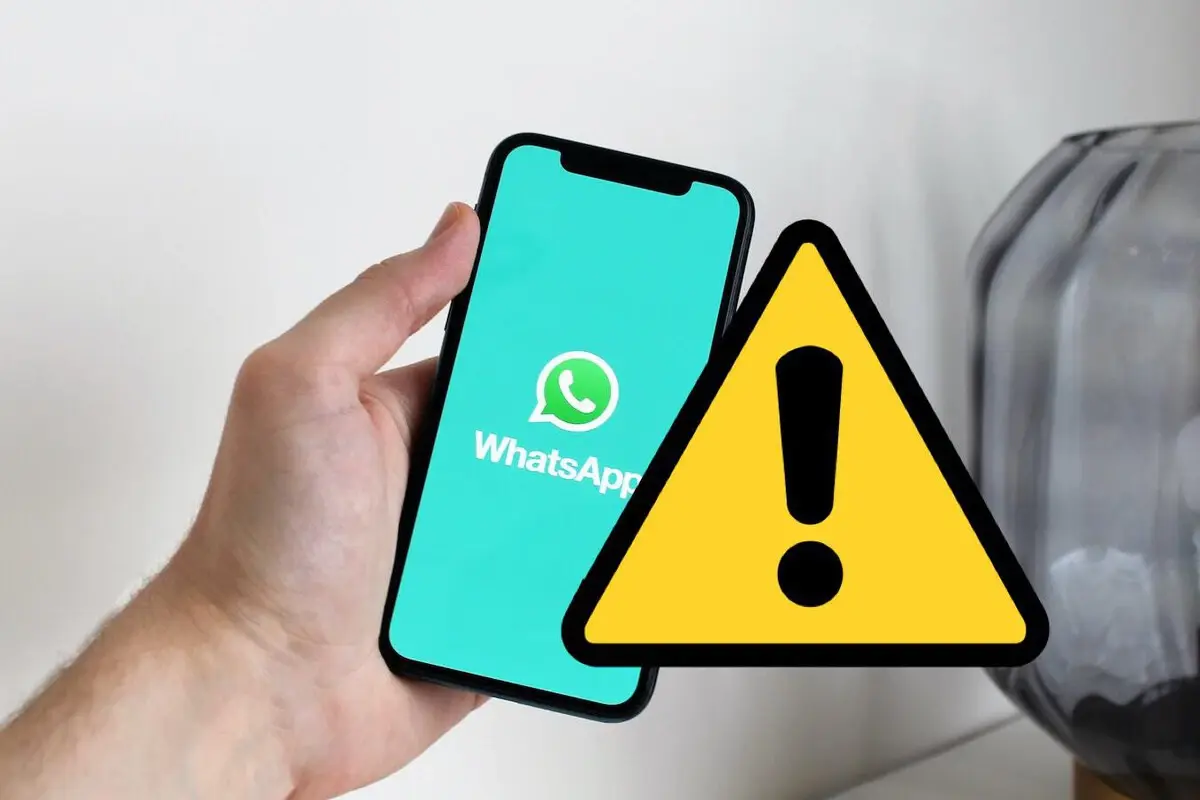newsTechWhatsApp
- How to avoid these common Whatsapp scams
- How to Stay Safe on WhatsApp
- 1. Fake Donation Schemes
- 2. Two-Step Verification Scams
- 3. Romance/Catfishing and Prostitution Scams
- 4. Fake Family or Friend Emergency
- 5. Free Gift Cards or Vouchers
- 6. Fake Tech Support or Account Verification
- 7. WhatsApp Gold Scam
- 8. Fake Lotteries and Giveaways
- 9. Cryptocurrency and Investment Scams
- 10. Unsolicited QR Codes
How to avoid these common Whatsapp scams
Efe Udin
January 20, 2025

WhatsApp, with its billions of users worldwide, has become a major target for scammers seeking to exploit its popularity. Understanding the various types of scams and learning how to avoid them is essential to protect yourself and your personal information.
 Image source: xatakamovil
Image source: xatakamovil
How to Stay Safe on WhatsApp
To protect yourself from WhatsApp scams, it’s crucial to adopt a healthy level of skepticism. Be cautious when interacting with unknown contacts, especially if they are requesting money or personal information. Avoid clicking on unsolicited links, scanning random QR codes, or downloading suspicious files. Always verify the identity of anyone who contacts you unexpectedly, and enable two-step verification on your WhatsApp account for extra security.
This article will explore some of the most common WhatsApp scams and provide tips on how to stay safe from these fraudulent schemes.
1. Fake Donation Schemes
In this scam, fraudsters pose as charitable organizations or individuals in need of donations for personal or community causes. Once you send the money, the “charity” disappears, and the scammer pockets the funds.
Always verify the legitimacy of charitable organizations before making donations. Reputable charities don’t rely on random messages through WhatsApp to solicit donations. If you’re inclined to donate, go through official websites or established fundraising platforms.

2. Two-Step Verification Scams
Some scammers may message you, claiming they mistakenly sent their two-step verification code to your phone number and ask you to forward it to them. This is an attempt to hijack your WhatsApp account by tricking you into providing the code they need to gain access.
If you receive such a message, do not share the verification code. Instead, secure your account by enabling two-step verification within WhatsApp settings and regularly updating your PIN. This adds an extra layer of protection to your account, making it harder for scammers to take control.
3. Romance/Catfishing and Prostitution Scams
Some scammers take advantage of people looking for relationships by pretending to be interested in romance. Over time, they build trust before inventing a crisis and asking for financial help. Similarly, you may be approached by someone offering illicit services, which is often just a way to get you to click on phishing or malware links.
To avoid falling for romance scams, be skeptical of people you meet online, especially if they avoid meeting in person or making video calls. Check their social media presence, and use tools like reverse image search to verify their photos. If someone asks for money early in the relationship, it’s likely a scam.
4. Fake Family or Friend Emergency
In this scam, someone poses as a friend or family member, claiming to be messaging from a new phone number due to an emergency. The scammer engages in conversation before eventually asking for money or personal information. These tactics often exploit the urgency of the situation to trick people into acting without verifying the identity of the sender.
To prevent falling for this scam, ask the individual for specific details that only the real person would know, such as their old phone number or personal details not readily available online. If the person cannot provide this information, it’s likely a scam. Always double-check before sending any money or sharing sensitive information, and contact the real person through other methods if you have doubts.
Join GizChina on Telegram
5. Free Gift Cards or Vouchers
A common scam that continues to circulate on WhatsApp involves messages claiming that you’ve won a free gift card or voucher, often from major retailers. These messages usually contain links that direct you to phishing sites or download malware onto your device.

The easiest way to avoid this scam is to remember that reputable companies do not give out free gift cards or vouchers through random messages. If an offer seems too good to be true, it probably is. Always verify the legitimacy of any offer by visiting the company’s official website directly rather than clicking on any suspicious links.
Read Also: WhatsApp May Soon Let You Create Personalized AI Chatbots
6. Fake Tech Support or Account Verification
In this scam, someone pretends to be from WhatsApp or another tech company, asking you to verify your account details or provide sensitive information. They might direct you to a phishing website or attempt to hijack your account.
To avoid this, remember that WhatsApp will never contact you directly through the app to ask for verification details. If you need to verify your account, this process will typically happen through a phone call or SMS. Never provide personal information or passwords through in-app messages.
7. WhatsApp Gold Scam
One of the oldest WhatsApp scams is the “WhatsApp Gold” hoax, where users receive an unsolicited message offering a supposed upgraded version of WhatsApp with exclusive features. The message includes a link to download this non-existent app, which often leads to phishing attempts or malware downloads.

To avoid falling victim to this scam, always be skeptical of unsolicited messages offering upgrades or special versions of apps. Official app updates come directly from the Google Play Store or Apple App Store, so ensure that any downloads are from these legitimate sources. If the message contains a URL that doesn’t look like it comes from an official app store or WhatsApp website, it’s best to avoid it altogether.
8. Fake Lotteries and Giveaways
Another scam involves messages claiming you’ve won a lottery or giveaway. To claim the prize, you’re instructed to click on a link or provide personal information. These scams usually result in phishing attacks or malware.
Legitimate companies do not notify winners of contests or lotteries via WhatsApp. If you receive such a message, do not engage with it. Instead, research the company or promotion to verify whether it’s real before taking any action.
9. Cryptocurrency and Investment Scams
With the rise in popularity of cryptocurrencies like Bitcoin, scammers often prey on people’s desire to invest and make quick profits. Scammers might message you, promising large returns for a small investment or offering secret investment tips in exchange for money.
Before making any investments, always do thorough research. Avoid deals that seem too good to be true, and only invest through reputable platforms. Remember, high returns always come with high risks, and legitimate investments require careful consideration, not spontaneous decisions made over WhatsApp.
10. Unsolicited QR Codes
Some scammers send codes instead of links, asking you to scan the code for many reasons. When you scan these codes, they take you to fake websites or put your phone at risk for malware or scams.
To stay safe, do not scan codes sent from people you do not know. In apps like WhatsApp, there is no good reason for someone to send you a code instead of a link unless they want to hide something. Real codes are on boxes, screens, or known sites, not in messages from unknown people.
By staying alert and using these tips, you can lower the risk of falling for scams and keep your info safe.
Disclaimer: We may be compensated by some of the companies whose products we talk about, but our articles and reviews are always our honest opinions. For more details, you can check out our editorial guidelines and learn about how we use affiliate links.
Source/VIA :
androidauthority